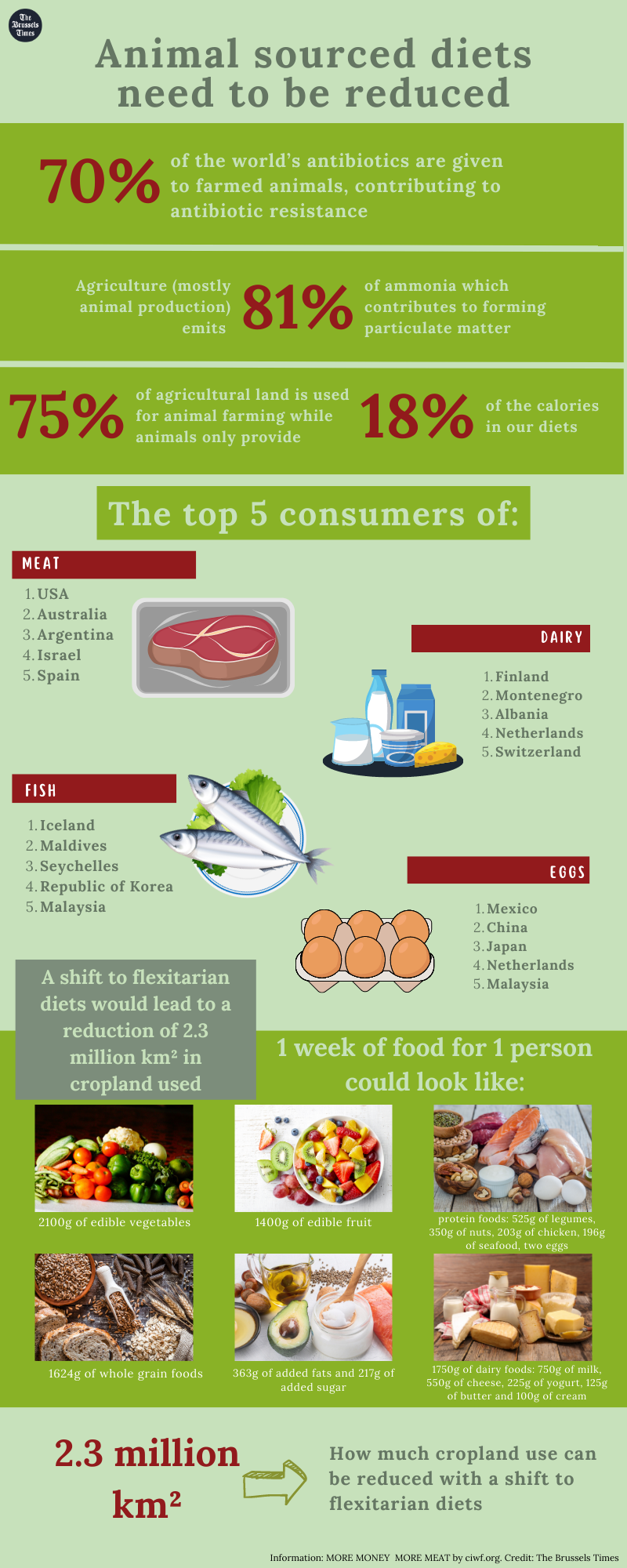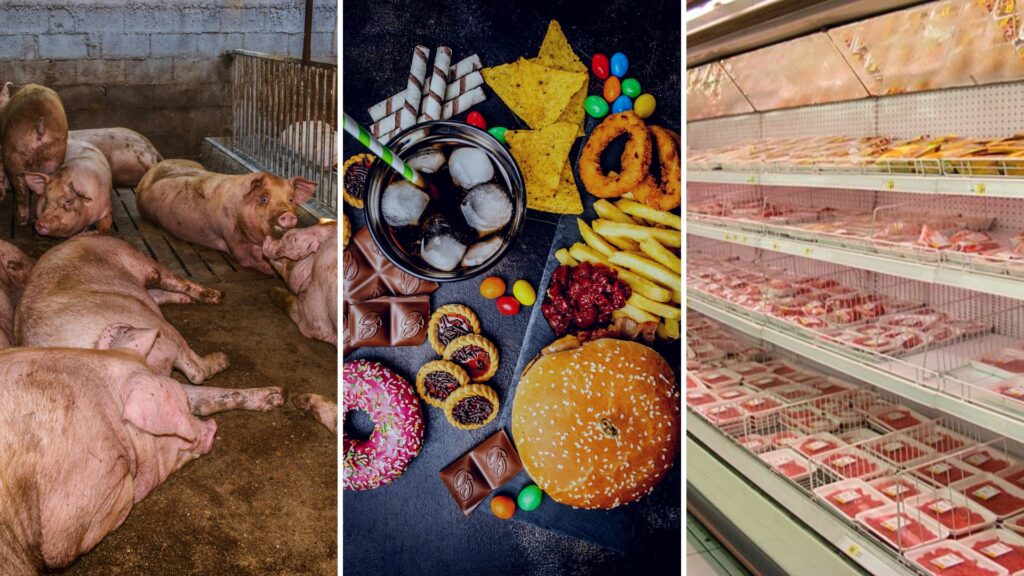Several European countries are among the top consumers of animal-sourced foods, according to a new report launched on Thursday by Compassion in World Farming (CIWF). The report highlighted the negative effects of this excessive consumption and suggested a switch to flexitarianism.
CIWF's report called 'More Money More Meat' provided detailed calculations of 103 high and middle-income countries' consumption of animal-sourced foods and compared the results with the amounts recommended in the EAT-Lancet Planetary Health Diet.
The mass production of animal products is not only harmful to the environment, but it is also detrimental to the health of human beings and contributes to the brutal treatment of livestock to keep meeting the demand for meat or animal by-products.
Related News
- Belgium an outlier as rest of Western Europe cuts back on meat
- Vegetarianism ‘no longer niche’: more Belgians go without meat
"In the richest countries, we are quite literally eating our way to our own extinction," CIWF's Global CEO, Philip Lymbery, warned. "Our insatiable appetite for cheap meat and other animal-sourced foods is damaging our health, causing immense animal cruelty and killing our planet."
The top 25 countries with the highest consumption of meat and animal products according to the report are 15 of the 27 EU Member States (Denmark, Estonia, Finland, France, Greece, Ireland, Italy, Latvia, Lithuania, Luxembourg, Malta, the Netherlands, Portugal, Spain and Sweden). Five non-EU European countries (Iceland, Norway, Russia, Switzerland and the UK) were also included in the list, as well as Canada, the US, Israel, Australia and New Zealand.
Disproportionate use of land
The food industry accounts for nearly a third of all human-induced greenhouse gas emissions. However, meat and animal products account for 60% of emissions according to the report. Comparatively, plant-based foods contribute half of that amount (with the other 10% being human activities that are not necessarily agriculture-related).
However, the emissions are disproportionate to the number of calories these products contribute to the general population's diets (animals provide 18% of the calories and 37% of the protein in our diets). Moreover, animal farming takes up over three-quarters of agricultural land, with around 40% used to grow crops to feed those very animals.
"Without rapid and ambitious change to food systems, the Paris Climate Agreement's target to limit average global temperature increases above preindustrial levels to 1.5℃ is impossible and even the 2℃ target is extremely challenging," the report stated.
Antibiotic resistance and particulate matter
Concerning the effect of the over-consumption of animals and animal-produced food on human health, the report stated that "around 70% of the world's antibiotics are given to farm animals." This contributes to the global phenomenon of antibiotic resistance, which is predicted to kill 10 million people each year by 2050.
Furthermore, the report stated that the agricultural industry (particularly animal farming) emits 81% of ammonia which reacts with other chemical compounds in the air and forms particulate matter (PM2.5). PM2.5 penetrates lungs and causes long-term illnesses such as Chronic Obstructive Pulmonary Disease (COPD) and lung cancer.
Red and processed meats are also linked to increases in "the risk of certain cancers, coronary heart disease, strokes and type 2 diabetes," the report read.
Inhumane treatment of animals
Finally, the report highlighted the numerous consequences of the over-production of cheap meat and excessive use of animal products, such as overcrowding, confinement, diseases, mutilations, overbreeding, live transportation in dire circumstances, inhumane killings, starvation and overfeeding.
The report stated two main options moving forward from this: countries can either continue the current trajectory (which will see cropland use increase by 8.4 million km2 by 2050 – roughly the size of Brazil) or switch to a so-called 'flexitarian' diet.
Flexitarianism does not completely eliminate meat and animal products but instead limits them and includes more fruits, vegetables and legumes. The EAT-Lancet Planetary Health Diet was designed for this purpose, as well as to reduce the number of saturated fats, highly processed foods and sugar that are also being over-consumed.
The EAT-Lancet Commission consists of 37 scientists from 16 countries, working in various fields such as human health, agriculture, political science and environmental sustainability. In 2019, the Commission published the 'Planetary Health Diet'.
The diet details specific targets of food groups with an optimal calorie intake of around 2500 kcal/day and contains a variety of plant-based foods. The diet aims to reduce saturated fats, highly processed foods and added sugars. The infographic below shows an example of a week's worth of food.

Credit: The Brussels Times / Danica Van der Merwe

